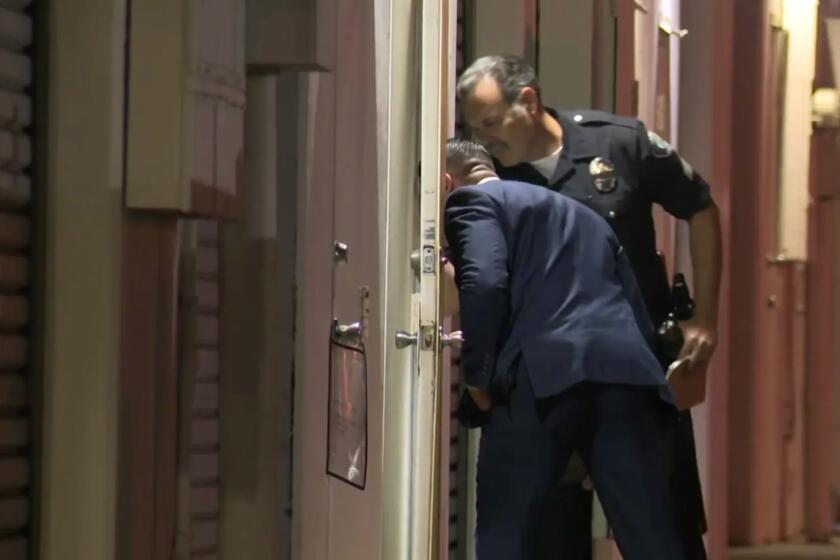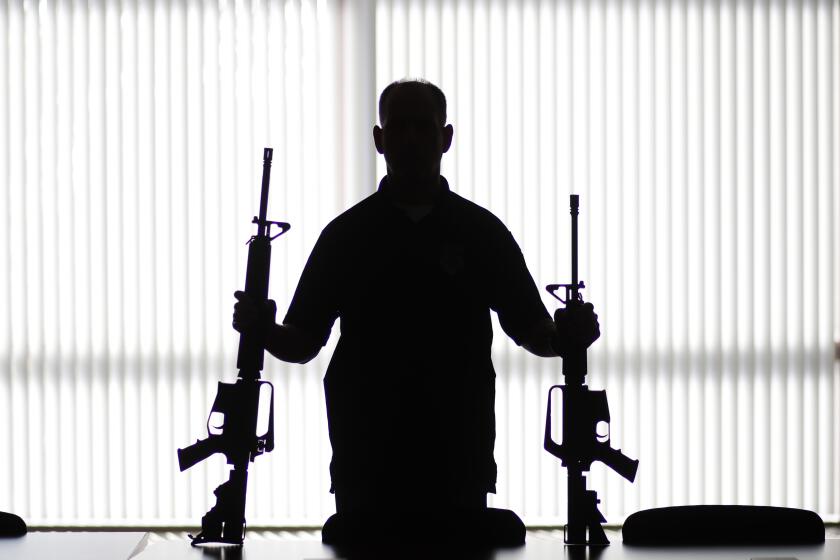Sacramento’s letter openers help state get its slice of the pie
SACRAMENTO — California’s financial lifeline runs through a sprawling complex of brick buildings near a freeway on the edge of Sacramento.
That’s where hundreds of workers open millions of envelopes, fish out the checks and feed them into three machines that whir, clank, stamp and sort them into neat piles. Every afternoon for a few weeks in April, as Californians pay their state taxes, a courier ferries them to eight banks to nourish the money-hungry government.
Meanwhile, lobbyists, lawmakers and activists — people whose jobs hinge on this seemingly mundane process — huddle by their computers and wait for the daily tally, which they’ll tweet and email like the play-by-play of a championship game. By the end of the month, state accountants will add up the money and hope there’s enough to cover expenses.
The count is politically charged, with consequences for welfare, healthcare and scholarship programs. Democrats in the Legislature have refused to act on any of Gov. Jerry Brown’s proposed budget cuts to plug an estimated $9.2-billion deficit until they see what the state pulls in, and income taxes are about 60% of California’s annual revenue.
“There is an extraordinary amount of attention being paid right now,” said Kevin Gordon, a lobbyist and advisor to schools.
So far, things are bleak. As of Wednesday, personal income tax receipts totaled $6.45 billion, according to the Franchise Tax Board. Officials hope for $9.4 billion by the end of the month. But that’s just a few days away, and the nonpartisan legislative analyst’s office, which provides budget advice to lawmakers, says the state will likely be at least $2 billion short.
“We know we’re going to have to make some more tough decisions,” said Senate President Pro Tem Darrell Steinberg (D-Sacramento).
Inside the Franchise Tax Board’s 90-acre campus, though, there’s little sign of tension. The mostly seasonal workers proceed envelope by envelope, with some trying to lighten their bureaucratic task by listening to music on headphones.
Trucks disgorge thousands of envelopes at a loading dock here up to six times a day. Although many people file electronic returns, officials say as many as 3 million of them, or 20%, still arrive the old-fashioned way. Most are opened and sorted by two machines that can each process 30,000 per hour.
If the envelopes don’t fit into the machines, it’s up to someone like Estevan Maldonado, 23, to slash them open with a razor blade. Every now and then there’s a surprise inside. One time, he said, there was a DVD that, instead of holding tax data, was filled with porn.
Although big payments come electronically, there are exceptions. Last week a worker found a $1-million check, said Catherine Dai, who oversees the electronic scanning process.
Across the football-field-size room are 230 specially designed tables with more than a dozen small shelves for sorting. Cora Riegel, 68, said she goes through 260 returns an hour, occasionally stopping to stretch her fingers.
“You get used to it,” she said.
Every year the workers organize “spirit week,” with themed contests featuring sports, Mardi Gras or crazy hats. Deborah Massey-Muse, 56, has won the hat contest 15 years running. This year she covered her head with a bouquet of spring flowers.
“It lit up,” she said. “I had an extension cord.”
For the rest of Sacramento, tax season brings more anxiety than fun. Brown has already said this year’s deficit could grow by at least $1 billion. And because April falls near the end of the state’s fiscal year, there are only two months left to balance the budget.
It looks like the flow has slowed to a trickle. After spiking at $1.5 billion in the middle of last week, the state reaped only $185.8 million on Wednesday.
“If that suggests we are through with the billion-dollar days, that could be a big problem,” said Jason Sisney, a deputy legislative analyst.
Still, everyone watches the daily reports. Anthony Wright, who advocates for affordable healthcare, compared it to election night: Whether the news is good or bad, it’s impossible to look away — even though, he said, “the polls are already closed.”
More to Read
Start your day right
Sign up for Essential California for news, features and recommendations from the L.A. Times and beyond in your inbox six days a week.
You may occasionally receive promotional content from the Los Angeles Times.






